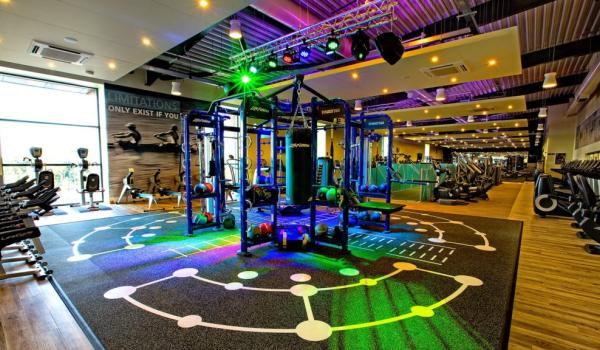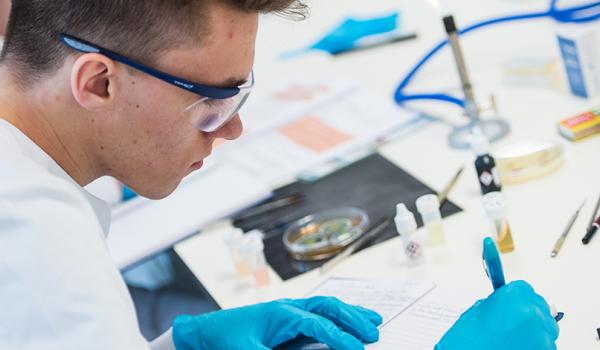Biosciences and medicine preparation

Welcome to the School of Biosciences and Medicine.
What to expect
One of our programme leads interviewed three current students who had just finished their Foundation Year in the School – they discussed advice around starting studying within the School of Biosciences and Medicine.
What we recommend
Whichever course you have chosen, there are few things we recommend you do before starting your exciting journey.
1. Textbooks and digital books
We recommend that you wait until you arrive at the University before purchasing any of textbooks. You will gain digital access to five or six important textbooks through our virtual learning environment (SurreyLearn) which are important to several modules – the list of these will be released shortly. Those provided digitally to all programmes for the last three years are as follows:
- Nelson, D. L. (David L. et al. (2021) 8th edition. Lehninger principles of biochemistry
- Alberts, B. et al. (2022) 7th edition. Molecular biology of the cell
- Tortora, G. J. & Derrickson, B. (2021) 16th edition. Principles of anatomy and physiology
- Tortora, G. J. et al. (2021) 13th edition. Microbiology: an introduction.
Of course, some students prefer to have hard copies of these and will, therefore, still want to purchase them. However, we would still recommend that you wait until you arrive to decide which ones to buy – some module leads will describe the pros of the recommended books and which ones are best suited for the modules. In addition, several of these will be available through the University library. In the meantime have a look at some of the topical reading and videos suggested by the programme teams.
2. Discover more about your course
Explore course-specific information, including how the accreditation or endorsement by a professional, statutory or regulatory body (PSRB) ensures the your learning is aligned with professional skills and standards required by your prospective employers.
Biochemistry BSc (Hons) and MSci (Hons)
- A typical weeks’ timetable for a biochemistry student
- Your PSRB: The Royal Society of Biology (RSB)
- We would encourage you to become a student member of The Biochemical Society.
Biological Sciences BSc (Hons)
- A typical weeks’ timetable for a biological sciences student
- Your PSRB: The Royal Society of Biology (RSB), we would encourage you to become a student member.
Biomedical Science BSc (Hons)
- A typical weeks’ timetable for a biomedical science student
- Your PSRB: The Institute for Biomedical Science (IBMS), we would encourage you to become a student member.
Food Science and Nutrition BSc (Hons)
- A typical weeks’ timetable for a food science and nutrition student
- Your PSRB: The Institute of Food Science and Technology (IFST)
- The IFST has some great lectures that could be useful to view
- One of our Teaching Fellow’s has created a food science blog and posts regularly on Instagram.
Foundation Year Bioscience
The Foundation Year Bioscience equips you with vital knowledge and skills for undergraduate study, integrating biology, chemistry, and maths. It develops academic and employability skills, resilience, and teamworking skills. It prepares you to go strongly into your Undergraduate and do fabulous things, provides a scaffolded transition to university, and allows access onto our nine Biosciences Degrees.
A week in the life of a Bioscience foundation year student
From Anatomy lectures to laboratory-based practical’s, discover what a typical week looks like as a Foundation Year Bioscience student at Surrey.
How you'll learn
Your teaching and learning will be delivered through a combination of:
- Lectures and interactive seminars
- Flipped learning
- Discussion groups and problem solving classes
- Revision and feedback tutorials
- Independent study and self-directed learning
- Guided group/team work
- Wet laboratory practical sessions (including pre-practical tutorials)
- Dry laboratory practical sessions (including immersive virtual reality and online tasks)
- Experiential learning
- Blended learning
- Reflective learning
- ePortfolio building
- Peer evaluation
Outside of these, you’ll be expected to carry out independent study, including coursework, essays, laboratory write-ups and reading.
A typical week in Semester 1 of your first year is shown below:
Monday
10am – ‘Project management’ seminar
12pm - ‘Population Bingo’ seminar
2pm - Fieldwork
Tuesday
9am - Fieldwork
1pm – Computer lab to consolidate fieldwork
5pm – ‘Amino acids’ Chemistry lecture
Wednesday
9am - Quiz-learn session & Reflective practice
12pm - Weekly surgery (drop-in sessions with academic staff) Live on MS teams
Please note, Wednesday afternoons are left free for sporting activities.
Thursday
10am – ‘Amino acid’ chemistry workshop
11am – ‘Excel for fieldwork’ seminar
4pm – ‘Heart anatomy’ lecture
Friday
9am | ‘Bioindicators laboratory write up’ feedback session (online)
10am | Independent study time to complete e-portfolio
10am | ‘Populations’ lecture (Online activity)
12pm | Independent study time to complete ‘Results sections’ of lab report
2pm | Chemistry worksheet (Online activity)
4pm | Weekly quiz (Online activity)
Disclaimer
The timetable and modules listed are indicative, reflecting the information available at the time of publication and may be subject to teaching availability, student demand and/or class size caps.
Microbiology BSc (Hons)
- A typical weeks’ timetable for a microbiology student
- Your PSRB: The Royal Society of Biology (RSB), we would encourage you to become a student member.
- We would encourage you to become a student member of the Microbiology Society.
Nutrition BSc (Hons)
- A typical weeks’ timetable for a nutrition student
- Your PSRB: The Association For Nutrition (AfN).
Here are some useful links on:
- Becoming a nutritionist
- 'What is a healthy diet' video from BNF
- The British Nutrition Foundation
- The Nutrition Society has interesting information and videos of topical research, for example, microbiome and ultraprocessed foods.
- An introductory video on the Nutrition Society
- A BMJ article on the history of modern nutrition science.
Nutrition and Dietetics BSc (Hons)
- A typical weeks’ timetable for a nutrition and dietetics student
- Your PSRBs: The British Dietetic Association (BDA) and The Health and Care Professions Council (HCPC).
Further suggestions of other societies and journals where you can read up to date articles on topics and research related to Nutrition and Dietetics:
- Complete Nutrition (register for free access)
- British Nutrition Foundation
- British Association Parenteral and Enteral Nutrition (BAPEN).
Sport and Exercise Science BSc (Hons)
- A typical weeks’ timetable for a sport and exercise science student
- A taster lecture by Dr Andrew Hulton, University of Surrey
- Your PSRBs: British Association of Sport and Exercise Science (BASES) and The Chartered Institute for the Management of Sport and Physical Activity (CIMSPA)
- A recording of ‘CIMSPA Pathway Explained’ by Dr Harry Roberts, University of Surrey.
Topical news and journal articles which you may find interesting to read before you join us:
- A guide to careers in Sport and Exercise Science (PDF)
- Swifter, higher, stronger: What’s on the menu? (PDF)
- The Limits of Exercise Physiology: From Performance to Health (PDF)
Videos and podcasts on what sport and exercise science is:
- Sport and Exercise Science at Surrey YouTube playlist
- What is Sport and Exercise Science (The Physiological Society)
- The Real Science of Sport podcast
- Pacey Performance podcast – Strength of Science.
Veterinary Bioscience BSc (Hons)
- A typical weeks’ timetable for a veterinary biosciences student
- Your PSRB: The Royal Society of Biology (RSB)
- The British Society of Animal Science.
We would encourage you to become a student member of either or both of these.
3. Explore placement opportunities
You may (or may not) be expecting to spend your third year out of university on our Professional Training Year (or PTY) – you can change this right up until the summer before the placement so no need to worry now if you are not sure. We thought, though, that you might like to hear from a selection of students that have completed a placement. View their videos below.
/


